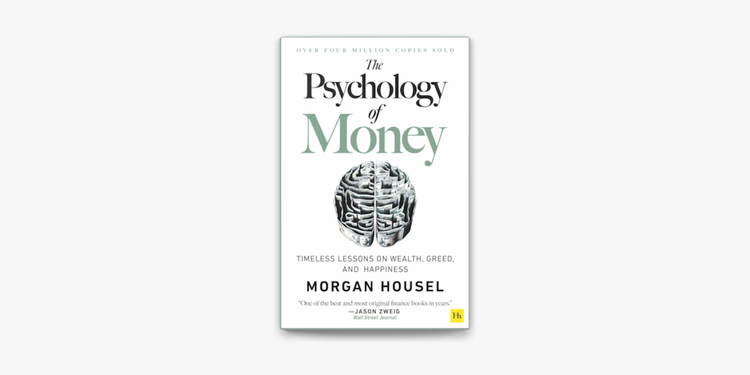Book Summary: "The Physiology of Money" by Morgan Hausel
• public
Table of contents
"The Psychology of Money" is a book that looks at how people think and act with money.
The book begins by discussing the concept of "rich" and how it is commonly associated with materialism rather than financial security. Morgan then explores the topic of financial planning and highlights how people often prioritize short-term gains over long-term planning.
He provides numerous examples of;
- How individuals and societies have approached money in the past,
- How these approaches have impacted their financial outcomes.
He also delves into the psychology of investing. And he discusses common biases and mistakes that people make when investing their money.
He stresses the importance of taking a long-term view when it comes to financial planning and investing. He encourages readers to concentrate on building good habits instead of trying to predict the market or make fast profits.
Overall, "The Psychology of Money" offers a thought-provoking and insightful exploration of the many ways in which our emotions, biases, and behaviors impact our relationship with money. He also provides practical advice for building a more secure financial future.
Key Ideas From Book
- Money is more about how we think than what we know: Our mindset and relationship with money are often more important than our financial knowledge and skills.
- Time is the most powerful force in investing: The longer we invest, the more time we have for our money to grow.
- Emotions often drive our financial decisions: We tend to let our feelings, biases, and personal experiences guide our choices.
- Personal finance is unique to each person: Decisions about money depend on our goals, values, and circumstances.
- Luck can affect our financial outcomes: Opportunities, career paths, and investments can be influenced by factors beyond our control.
- Simplicity is key in personal finance: Long-term investment strategies that are straightforward are often the most effective.
- Adaptability is essential for financial resilience: Flexibility and the ability to adjust to changes are critical for long-term success.
- Wealth is built through small, consistent decisions: Accumulating wealth comes from making wise choices over time and avoiding impulsive spending.
- Comparing ourselves to others can harm our financial goals and well-being: Focusing on our own progress and goals is more important than comparing ourselves to others.
- Investing in knowledge leads to financial success: Learning and education are crucial for making informed decisions and achieving long-term financial goals.
Questions From Book
- How do people's attitudes towards money affect their financial success?
- How does understanding the history of money help us make better financial decisions?
- What is the importance of saving and how can it be accomplished effectively?
- How does our perception of wealth impact our financial behavior?
- What are the common mistakes people make with investing and how can they be avoided?
- What is the role of luck in financial success?
- How can we balance our present and future financial needs and goals?
- How can we develop healthy financial habits and behaviors?
- What is the relationship between money and happiness?
- How can we teach children about money and financial responsibility?
Related Book List & Guide
This book is a part of Passive Income section of Life Guide. If you want complete guide, you can visit “Life Guide”.
